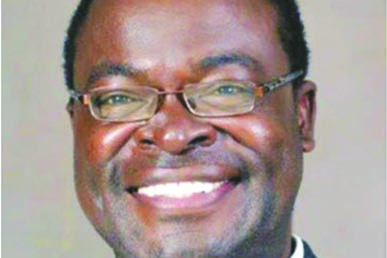
GOVERNMENT’S decision to introduce electronic learning (e-learning) in colleges and universities has thrown the higher education system into disarray as a sizable number of students fear being left out because of high data tariffs and lack of internet connectivity, it has emerged.
BY EVANS MATHANDA
The decision followed the significant easing of the on-going national lockdown to contain the rampaging Covid-19 by limiting movements and prohibiting gatherings.
Government closed schools and institutions of higher learning at the onset of the lockdown on March 30, but while primary and secondary schools remain closed, colleges and universities will resume operations on Monday via e-learning.
The return was however limited to final year students. Government also announced it was working on modalities to reopen classes for classes set to sit for examinations in June and November.
With the lockdown terms stipulating social distancing and banning of public gatherings of more than 50 people at an event, most secondary and tertiary institutions have resorted to internet based learning where lectures, textbooks, lessons and dissertations are delivered and market on WhatsApp and via emails.
However, this will close out many students facing a myriad of challenges which include high cost of data, lack of access to the internet especially for those who are based in rural geographic settings.
In interviews with NewsDay this week ahead of the resumption of lectures , students from various institutions of higher learning said they took the decision with a pinch of salt.
- Chamisa under fire over US$120K donation
- Mavhunga puts DeMbare into Chibuku quarterfinals
- Pension funds bet on Cabora Bassa oilfields
- Councils defy govt fire tender directive
Keep Reading
“While it is a plausible idea to continue our studies during this unprecedented Covid19 lockdown, I think most of the students do not have the requisite internet infrastructure in their homes. Wi-Fi is expensive and is still far beyond the reach of many. Besides students have been accustomed to face to face tutorials and discussions. The transition is a very difficult one especially without any kind of government support,” Shalom Chibondo, a Development Studies student from the Zimbabwe Open University said.
She added that, this would also serve as a wake- up call to the government to support and establish the modernisation of education and training systems online.
Shylet Samudzi, a Human Resources student from Women’s University in Africa, said conducting tutorials on WhatsApp groups has been torrid.
“We are receiving questions for our class group presentations which we present through sending voice notes on our WhatsApp group. It’s also difficult to concentrate when studying on WhatsApp,” she said.
“It is however a challenge since some of our class mates will be offline as they give excuses of data expense hence not all students are bound to participate in WhatsApp group discussions,” she added.
Contacted for comment was a senior lecturer from Midlands State University, Professor Ngamo Mhiripiri who said that virtual learning is not a new phenomenon, several institutions such as MSU, Chinhoyi University and Africa University to mention a few have been using the online platform to communicate with students particularly for dissertation supervision and handling in of assignments but the only difference is that it was a backup.
“Now in these circumstances we now have to prioritize the backup as it’s now leading phenomenon and we have to adapt to it so as to smoothly transition,” he added.
Permanent secretary in the ministry of Higher and Tertiary Education Innovation Science and Technology development professor Fanuel Tagwira said government was very concerned about the needs of the students in higher and tertiary education and the ministry has submitted a request for budgetary support to capacitate the institutions so that they are able to provide an efficient blended learning service (e-learning plus face to face in certain circumstances) to the students.
“It is important to realize that higher education is taking a new trajectory as a result of COVID 19. Nobody knows when the current pandemic will go ahead and therefore waiting for an opportunity to do face to face classes for everyone is not an option. It cannot be business as usual. There will be some rough edges along the way but that is what happens when you introduce new systems. Your perfect as you go”, he added
In a statement entitled: “Rescuing the 2020 Academic Year: The right to accessible and affordable education is sacrosanct even in a pandemic,” the Zimbabwe National Students Union says they received with concern outlined plans and timetables from various institutions of Higher Learning meant to rescue the 2020 Academic calendar.
“While we recognize the need to proceed with learning for non-graduating classes through non-contact learning, we maintain that the right to accessible and affordable education for all remains non-negotiable, even in the midst of a pandemic. Our public position on online learning remains unshakably firm. The majority of the students cannot afford the exorbitant data charges. The past few weeks have been a testimony to this cruel fact. Many students have been left out in attempts to continue with learning online,” the statement reads.
Zinasu statement also highlighted that they acknowledge institutions that have made strides to avail mobile data bundles for students and they are also worried about the exclusion of students who were yet to settle fees arrears, who will still pay what they owe in due time and they demand that there must be no discrimination and exclusion in any plan to proceed with learning.











